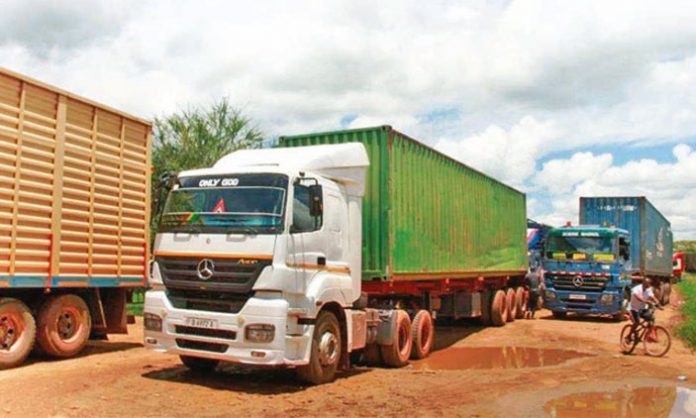Over the last one month, President Yoweri Museveni has addressed Ugandans many times, each time giving an account of the nation’s efforts to break the chain of the deadly coronavirus pandemic.
The number of positive cases as reported by the Director General of Health Services on May 15th officially stood at 203. Of these, 63 cases had recovered and been discharged from hospital leaving the country with 140 active cases.
On Friday, Uganda recorded the highest number of infections in one day after 43 truck drivers tested positive.
This has created apprehension among Ugandans, calling on authorities to either lift the lockdown or stop the movement of the truck drivers who are importing the virus into the country.
While speaking in Parliament on Thursday, Kadaga told the House that Ugandans are concerned about government’s decision to continue keeping them locked inside their houses yet they are not infected, while the same government allows truck drivers, many of who are infected with COVID-19, to continue moving freely around the country.
“It is disturbing to note that the bulk of the new #COVID-19 cases are from truck drivers. Ugandan locked in their homes are not moving, but truck drivers who are testing positive are going about normal life. Ugandans are concerned about this and I am concerned too,” Speaker Kadaga told Parliament.
President Museveni has continuously said “we have studied the behaviour of the virus and come to a conclusion that it is more of a behaviour issue rather than a complicated medical case”.
It is a public secret that Covid-19 has led to a slowdown of the global economy and national governments have been engaging their top notch economists to chart ways of keeping the economy afloat in the wake of the virus.
In Uganda, the economic impact of the Covid-19 has begun to bite. A huge chunk of the population, those in the transport sector and other informal businesses have been temporarily laid off and now have to be fed by government, traders of non-food items are reportedly now surviving on their capitals while staring at a bleak future before them. They are not sure if they will get back to business after the virus has gone.
Despite the gains so far registered, it looks like the handling of truck drivers is going to take us three steps backward. The President said; “If you say that the current 800 truck drivers (who make it through the borders) stay at the border, it will interfere with business. The economy should move, but move without the disease spreading.”
While we don’t doubt the intentions of government in handling the truck drivers, it is safer to err on the side of caution. It would be prudent to be sure of the test results before releasing the truck drivers to commingle with people along their routes. It may not be through physical contact but may be through the money they will use to buy food from the people along the way.
Authorities in various districts had come up with various measures and have shared opinions on handling cargo vehicle drivers and people using illegal border points to move in and out of the country.
The Bukedea District Covid-19 task force resolved that the drivers should not make any stopover in the area. Some have been stopping in trading centres to siphon fuel to sell to local dealers, rest and buy food.
“These truck drivers are meant to stop at designated points and Bukedea is not one of them so from now on, we shall not tolerate any of them making a stop at the district since we are not sure of their status,” Mr Charles Icogor, the deputy Resident District Commissioner, said.





















